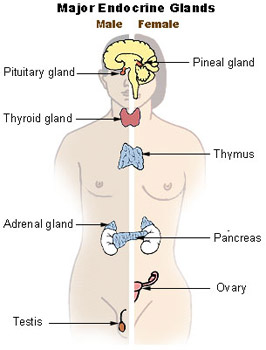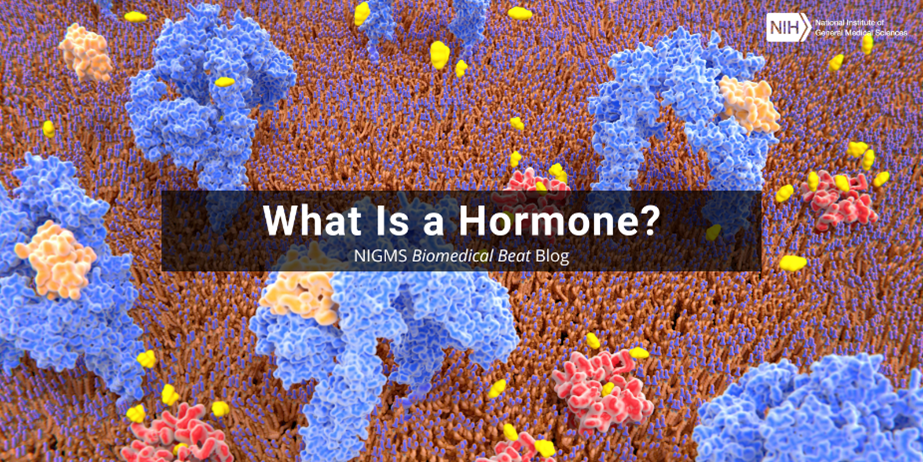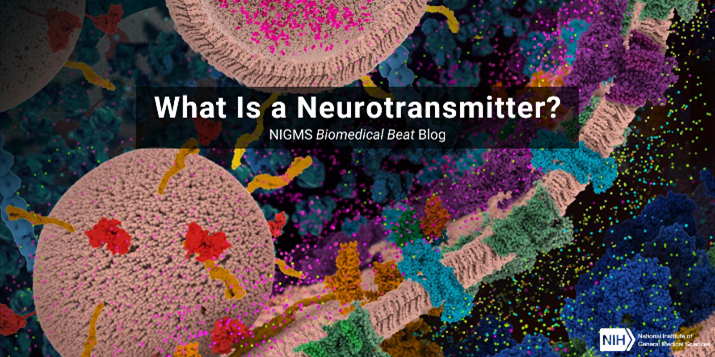Hormones are chemical messengers in the body that glands form and release, or secrete, into the bloodstream, where they travel to various organs and tissues to change biological functions. Hormone levels fluctuate during a lifespan and even on a daily basis.
Growth spurts in toddlers or sudden changes in adolescents are directly related to large hormonal shifts during development and puberty. Smaller changes occur throughout each day to help maintain normal bodily functions, such as our sleep-wake cycle known as our circadian rhythm.

Hormones and the glands that secrete them make up the endocrine system. Scientists have identified more than 50 hormones in humans. Glands in the brain (hypothalamus, pituitary gland, and pineal gland) and in the body (thyroid, thymus, pancreas, adrenal, ovaries, and testes) make these hormones.
How Hormones Work
After entering the bloodstream, hormones travel throughout the body and bind to specific receptors on or in cells to tell them to change or start certain processes. Such processes may include triggering signaling pathways or turning on genes to make new proteins. For example, the pancreas releases a hormone called insulin when the blood glucose (sugar) level is high. The hormone binds to insulin receptors on liver or muscle cells, triggering a signaling pathway that causes proteins called glucose transporters to move to the cell surface. Glucose enters the cells through these proteins, which lowers blood glucose levels to maintain homeostasis—a stable environment. When a person has diabetes, their body doesn’t produce or respond to insulin normally, so they have to monitor their blood glucose level and sometimes take medication or insulin to help manage it.
Often, multiple hormones work together to create larger changes in the body including:
- Growth and development by growth and thyroid hormones
- Reproductive organ development and function by estrogen, progesterone, and testosterone
- Blood sugar control and energy balance by insulin, glucagon, leptin, and ghrelin
- Sleep-wake cycle by cortisol and melatonin
- Response to stress by adrenaline and cortisol
The endocrine system uses feedback loops to help regulate hormone levels. Feedback loops are coordinated systems that link the output of the system to its input. For instance, a gland can receive a signal to stop producing a hormone if too much of it is in the bloodstream.
Hormone Imbalance
Hormone imbalance occurs when a gland produces too much or too little of a hormone. Hormone imbalance naturally exists during certain periods of life—including puberty, pregnancy, and menopause—in which the body undergoes significant physical changes. Other times, stress or certain medicines may cause it. These changes are usually temporary, and people can manage them by reducing stress or changing the medicine. However, endocrine gland damage, autoimmune disorders, tumors, or chemical exposure can cause long-term hormonal imbalance that doctors may be able to treat with medicine, radiation therapy, or surgery. Scientists, including those with NIGMS support, are learning more about how hormones work, which can aid in developing new ways to treat hormonal imbalance.
Compared with other important molecules like proteins and nucleic acids, hormones are tiny. But they are key messengers that have big impacts on your body. The next time you feel full after meal or sleepy at the end of the day, remember the hormones that regulate these feelings and help the parts of your body communicate.







